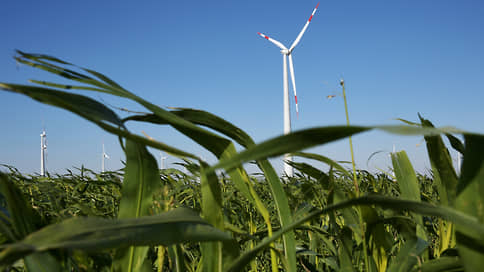En+ wants to build a 1 GW wind farm near Blagoveshchensk “to export energy to China
[ad_1]

En+, as part of a joint company with China Energy, expects to begin construction of a 1 GW export wind power plant in the Far East next year. En+ expects that up to 70% of construction funds will come from project financing from Chinese banks. Until now, numerous proposed new generation projects in the Russian Federation for export to China have not been implemented due to the lack of payback mechanisms. The key problem remained the low price at which China is willing to import electricity, but En+ assures that it will be able to achieve the conclusion of long-term contracts.
En+ (MOEX: ENPG) intends to attract Chinese project financing for the construction of an export wind power plant (WPP) in the Blagoveshchensk region. The company plans to build a project costing about 70 billion rubles. on par with China Energy, project financing can cover up to 70% of the cost of a wind farm. The head of the En+ energy business, Mikhail Khardikov, told reporters about this at EEF 2023.
“Up to a certain stage, we promoted this wind farm on our own, now our Chinese partners (China Energy.— “Kommersant”) propose to implement it 50% to 50%. We understand our contribution to the project – the very idea of the wind farm, its feasibility study, agreements with the corporation for the development of the Far East and the Arctic for the use of all special regimes. The contribution of the Chinese partner includes equipment for the wind farm at competitive prices, and, of course, financing,” explained Mr. Khardikov.
According to him, the project financing rate could be about 3–4% for ten years.
The wind farm in Blagoveshchensk with a capacity of up to 1 GW is aimed at exporting up to 3 billion kWh per year to China. Electricity is planned to be supplied to the Chinese province of Heilongjiang via the already existing Amurskaya-Haihe power line. “They don’t have such wind potential to the south (as in the Blagoveshchensk area.— “Kommersant”). There is demand in this province, in addition, China is interested in electricity with a low carbon footprint,” explained Mr. Khardikov. “If we agree on the main parameters… I think that nothing will prevent construction from starting next year, and then the wind farm will be introduced in stages,” he added.
Other Russian players also considered the possibility of building new generation in the Far East for export to China: RusHydro planned to build a hydroelectric power station, Inter RAO planned to build a coal-fired Erkovetskaya thermal power plant, but neither of the projects was implemented. The key problem is considered to be low electricity tariffs in China, which do not provide sufficient return on investment for Russian companies.
According to Mr. Khardikov, it is planned to conclude a long-term agreement on the sale of electricity with the Chinese side. “Currently, the export tariff is tied to the spot market in China, we want and expect to make a long-term tariff with the Chinese side… We are counting on a long-term contract, for at least ten years,” he clarified.
As Sergei Kondratiev from the Institute of Energy and Finance notes, the En+ project differs from previously announced ones, since most Russian investors proposed building coal-fired thermal power plants rather than developing renewable energy sources.
According to his calculations, the growth rate of demand for electricity in Chinese regions bordering Russia in recent years has been lower than the national average (3.8% in Heilongjiang for 2016–2021 versus 6.6% for the country as a whole), but in these regions there is a high the share of coal generation, which will be rapidly phased out in the coming years as part of the program for decarbonization of the economy.
The cost of electricity for high-voltage consumers in Heilongjiang is 740 yuan per MWh ($101 per MWh), which is significantly higher than the cost of electricity in the central and southern regions. The average cost of electricity imported from Russia in July was about $43 per MWh. “If Chinese partners are not ready for a significant increase in prices and focus on the range of $40–50 per MWh, En+ will have to pay special attention to controlling costs,” the analyst believes.
[ad_2]
Source link





